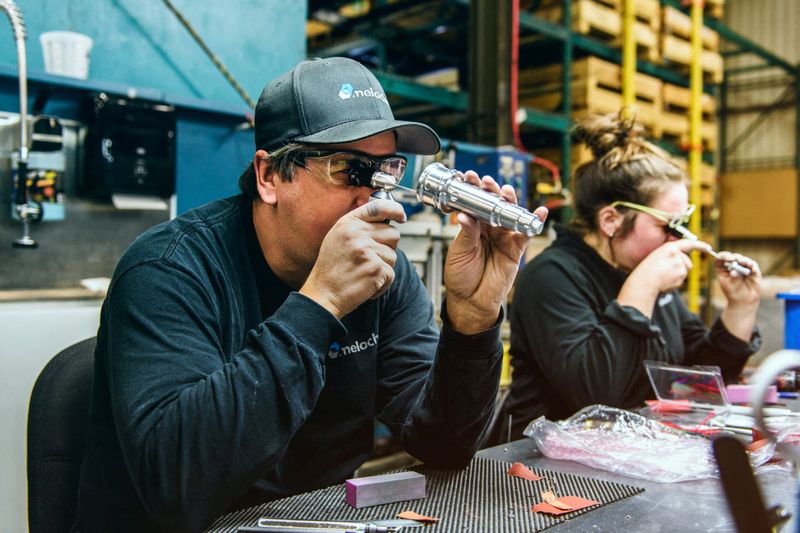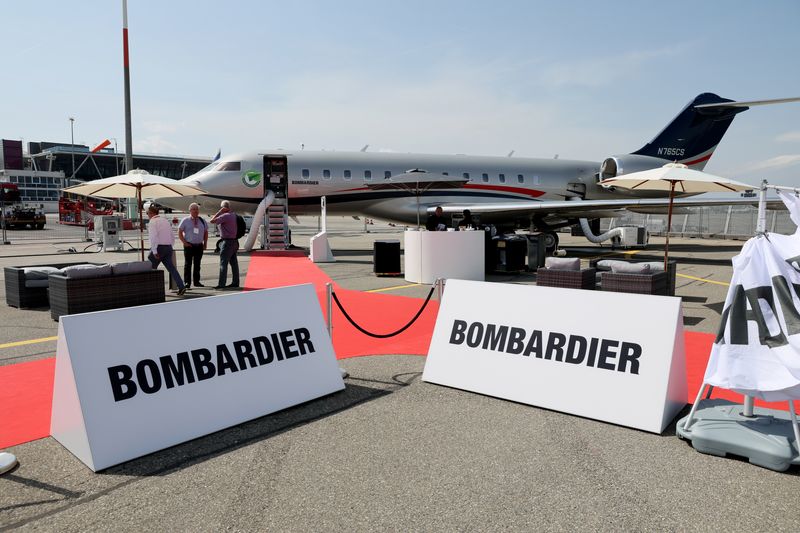By Allison Lampert
MONTREAL (Reuters) - Aerospace supplier CEO Hugue Meloche spends more than C$10,000 for each skilled foreign worker he brings to his company's Montreal-area factories, but paying those costs is preferable to leaving key positions unfilled while orders boom.
As clients like engine maker General Electric (NYSE:GE) boosted production in 2022, the head of Meloche Group hired 20% of its workforce of 500 from countries like Mexico, Tunisia and Brazil to make up for staffing shortfalls. This added at least C$1 million ($736,377.03) in costs at a company generating around C$100 million in annual revenue.
Added costs like those are especially hitting smaller suppliers with limited resources, industry officials said. The suppliers must then cut costs elsewhere or pass on those extra charges to their customers while struggling to meet demands for competitive pricing and higher production from planemakers Airbus and Boeing (NYSE:BA).
The tight manufacturing labor market, following a wave of retirements during the height of the COVID-19 pandemic, has led North American aircraft repair shops and suppliers, especially in Canada, to recruit a small but growing number of workers from abroad. This fills critical positions but puts a fresh burden on small suppliers whose human resources staff normally do not help new arrivals find homes and cars.
These challenges are not going away as airline and aerospace executives remain cautious on supply chains and see problems persisting until 2025.
Meloche's company in the Canadian province of Quebec offers loans to recruits, as well as short-term housing. It has four employees dedicated to helping newcomers with everything from finding a new home to buying a car.
"We are the help desk," Meloche said in an interview. "We have huge needs. For us, immigration is not a choice."
Plane and engine makers rely less on foreign labor since they have the heft to lure domestic talent with better incentives, recruiters say. But they are not immune.
Business jet maker Bombardier (OTC:BDRBF), which has 17,000 workers globally and generated $6.9 billion in 2022 revenue, told Reuters it expects international recruitment will represent 10% to 15% of its Quebec production workforce hired in the next few years, an estimate that was not previously reported. It currently employs about 9,400 in Quebec.
Airbus' Canadian division said some of its recruitment needs must be met via immigration, while Boeing said the use of U.S. visas to bring in foreign workers "is very limited."
Montreal-based Bombardier is taking on 40 new Moroccan workers with 40 more set to join, following its first international recruitment mission for trade laborers this year. The company provides housing, paid flights and other perks.
Offering that kind of help is harder for smaller suppliers, which make up most of the 17 aerospace companies in Quebec that hunted for workers abroad in 2022, according to data from Canadian recruitment specialist AURAY Sourcing International.
APARTMENT HUNTING
"We're asking (human resource departments) to ... have other tasks they've never had, such as looking for apartments," AURAY client services manager Emilie Sauvé said.
For companies like Meloche that have had employees poached, or leave for jobs at planemakers, one benefit in hiring foreign workers under immigration rules is that "they have to be loyal to the company they're hired for," Sauvé said.
"The small suppliers are drowning."
Hugue Meloche, who expects his business to generate C$135 million in 2023 revenue, sees recent economic headwinds easing the labor shortage, but recruitment of foreign workers will persist in Canada's aerospace hub.
Indeed, recruiters say Canadian aerospace companies use foreign workers more than their U.S. counterparts due to the availability of immigration programs that allow such hiring more easily north of the border.
But U.S. aircraft repair companies also consider foreign workers as an option, with a North American shortfall of aviation maintenance workers likely to hit 43,000 by 2027, according to consultant Oliver Wyman.
One U.S. trade association representing aircraft repair shops is weighing whether in-demand jobs like aircraft mechanics could be eligible for special visas.
AAR (NYSE:AIR) Corp, a Chicago-based network of aircraft maintenance shops, has recruited some technicians from Mexico in recent years under an existing visa due to growing shortages at home, said Ryan Goertzen, a company vice president.
Figures for foreign aerospace workers in the U.S. were not available from three government departments approached by Reuters. According to Canadian government data for one nonimmigrant admission program, there were 125 temporary foreign worker positions for aircraft mechanics last year, compared with seven a year earlier and 66 in 2019.
There are a handful of programs in Canada used to recruit foreign workers, said Sauvé, adding she expects to see higher numbers this year and next as demand grows at her own firm.
The number of aerospace positions targeting international candidates grew 136% at Sauvé's firm this year compared with 2022.
"We had it last year, but this year it's exploded," she said.
At aircraft repair shop KF Aerospace in British Columbia, workers from countries like South Africa and the Philippines account for about 7% of the workforce. The company has 22 apartments for short-term staff housing.
KF hired 40 skilled foreign workers alone this year, compared with roughly 35 over 2018 and 2019 combined.
Each skilled foreign worker requires an investment of more than C$11,000 in relocation and immigration costs. But the cost is worth it since KF Aerospace needs skilled workers in order to be able to hire local apprentices, who require mentoring.
"Once we hire them, we want to hang on to them as long as we can," KF's chief corporate services officer, Grant Stevens, said, referring to the skilled foreign workers.

"Long gone are the days of, 'just put an ad.'"
($1 = 1.3580 Canadian dollars)
